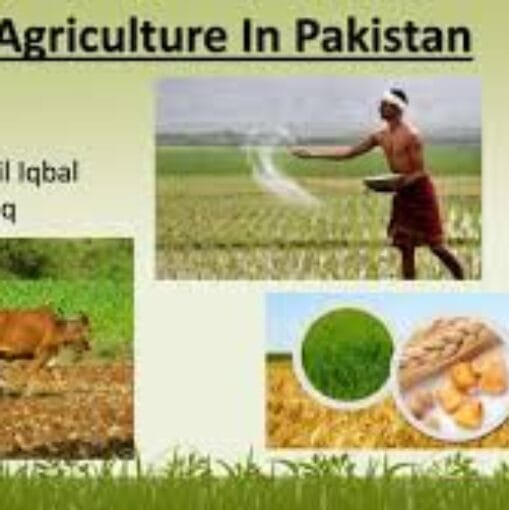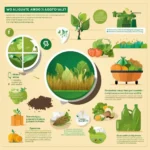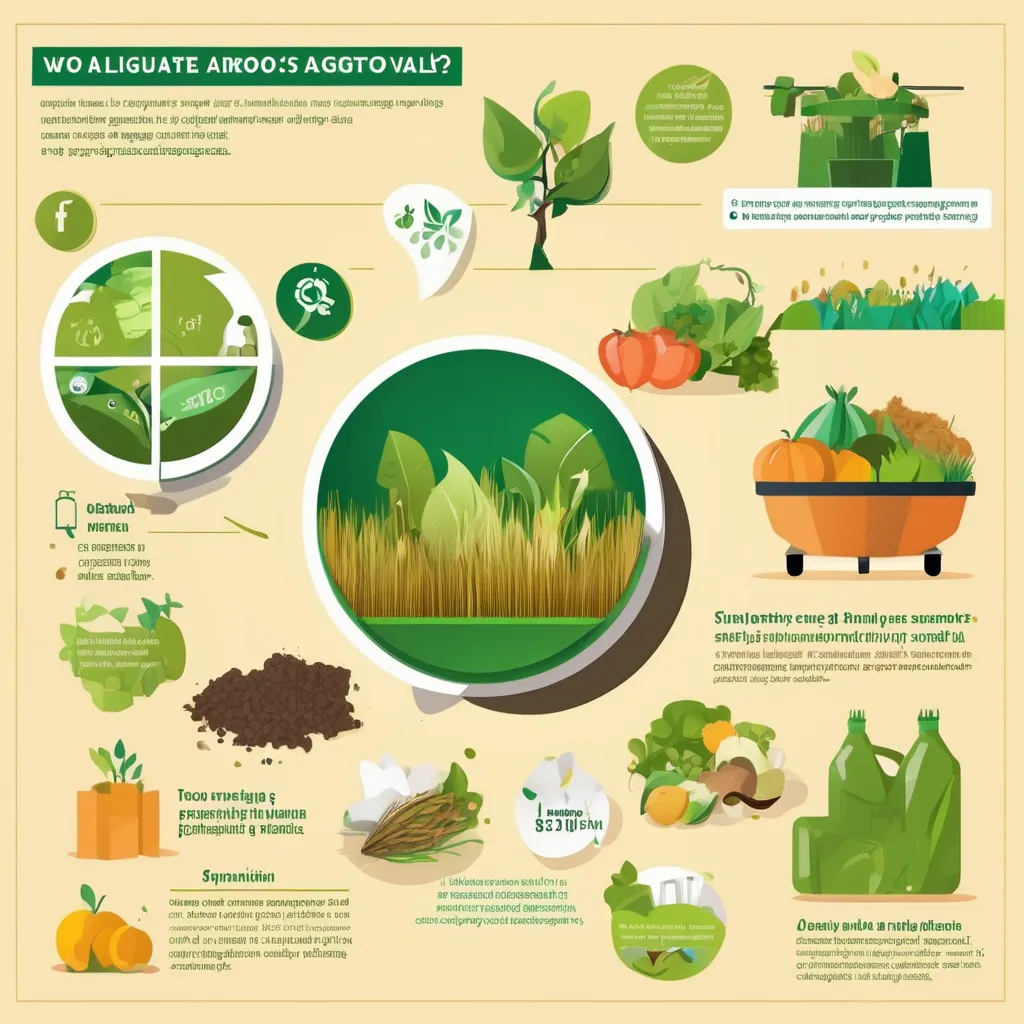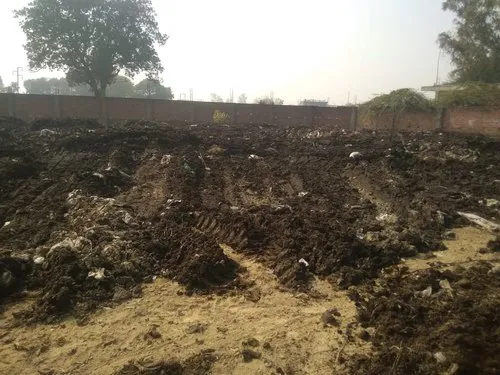Biochar is a valuable soil amendment that has gained recognition worldwide for its ability to improve soil health and fertility. In Pakistan, where agriculture plays a vital role in the national economy, the importance of biochar cannot be overstated. With soil degradation and fertility decline posing a significant threat to crop productivity and food security, biochar offers a sustainable solution for enhancing soil quality and increasing crop yields.
Key Takeaways:
- Biochar is a soil amendment that enhances soil health and fertility.
- In Pakistan, where agriculture plays a vital role in the national economy, the importance of biochar cannot be overstated.
- Biochar offers a sustainable solution for improving soil quality and increasing crop yields.
- Soil degradation and fertility decline pose a significant threat to crop productivity and food security in Pakistan.
- Biochar can help mitigate soil degradation, improve nutrient retention, water holding capacity, and microbial activity.
What is Biochar?
Biochar is a type of charcoal that is produced from organic matter through a process called pyrolysis. This process involves heating the feedstocks, such as wood chips, agricultural waste, and crop residues, in an oxygen-limited environment. The resulting charcoal is then cooled and ground into a fine powder.
Biochar production can occur using a variety of feedstocks and technologies, ranging from small-scale kilns to large industrial processes. When produced sustainably, biochar can be an environmentally-friendly source of energy and a valuable soil amendment.
How Biochar Enhances Soil Health and Fertility
Biochar is an organic material derived from burning plant materials, typically wood, in the absence of oxygen, resulting in a carbon-rich and highly porous substance. The unique physical and chemical properties of biochar make it an effective soil conditioner and a valuable addition to sustainable agriculture practices in Pakistan.
Soil Health Benefits of Biochar
Research has shown that adding biochar to soil can significantly improve its health and fertility, leading to better crop yields and overall farm profitability. Some of the key soil health benefits of biochar include:
- Enhanced soil nutrient retention, which ensures optimal plant growth and reduces the need for synthetic fertilizers
- Increased water holding capacity, which promotes optimal hydration and reduced runoff
- Improved microbial diversity and activity, which support healthy soil ecosystems and nutrient cycling
- Reduced soil acidity, which can improve plant growth and nutrient uptake
Biochar’s Impact on Soil Fertility
Biochar has been shown to help increase soil fertility by improving nutrient availability and uptake. The porous structure of biochar provides a habitat for beneficial microorganisms, which contribute to nutrient cycling and uptake processes. Additionally, biochar’s high surface area provides surfaces for nutrient adsorption and can help store micronutrients such as copper, zinc, and iron in soil, making them more accessible to plants.
Mitigating Soil Degradation and Erosion
Biochar can also help mitigate soil degradation and erosion by increasing soil aggregation and stability. The stable carbon in biochar can stay in soil for hundreds to thousands of years, creating a long-lasting soil amendment that can help prevent nutrient leaching and soil erosion. Biochar can also reduce nutrient runoff, protecting soil and water quality.
Overall, incorporating biochar in Pakistani agricultural practices can help enhance soil health, improve crop yields, and contribute to long-term sustainability. Farmers and agricultural organizations can consider implementing biochar application techniques, such as top dressing, incorporation into soil, and composting, based on their crop and soil requirements.
Biochar Application Techniques
Biochar is a valuable addition to Pakistani agriculture, and the application techniques can help in realizing the full potential of its benefits. Incorporating biochar into the soil is one of the most effective methods, requiring deep tillage and incorporation at a rate of 5-10 tons per hectare. This helps provide long-term benefits to soil structure, fertilizing capacity, and nutrient retention.
For top-dressing, biochar should be applied on the soil surface and mixed well with the top layer of soil. This method can be used for crops that require immediate attention, such as vegetables and ornamental plants. The application of biochar through composting involves mixing it with organic fertilizer materials, enhancing its nutrient fixation capacity without affecting fertilization or affecting plant growth.
Determining the optimal application rates of biochar depends on various factors, including soil type, crop requirements, and the desired outcomes. Soil tests can help identify the ideal amount of biochar required, usually at a rate of 5-10% by volume or weight. Over-application should be avoided since biochar can absorb nutrient cations and hinder their uptake by plants.
Case Studies on Biochar’s Effectiveness in Pakistani Soils
Real-life case studies and success stories have shown the remarkable impact of biochar on crop yields, nutrient utilization, and profitability for farmers in Pakistan.
One study conducted in Punjab found that the application of biochar increased wheat yield by 48%, while reducing water usage by up to 30%. Another research in Sindh indicated that the incorporation of biochar into soil enhanced the growth and yield of tomato crop by 21% and reduced chemical fertilizer inputs by 30%.
These impressive results have encouraged the adoption of biochar practices by farmers across the country, with successful outcomes for both smallholder farms and commercial enterprises. For example, a dairy farm in Islamabad has successfully utilized biochar to boost milk production and diversify its revenue streams.
These success stories demonstrate the scalability and applicability of biochar for enhancing soil health and agricultural productivity in Pakistan. Through continued education and promotion, biochar practices are poised to contribute to the long-term resilience and sustainability of Pakistan’s agroecosystems.
Challenges and Considerations for Biochar Adoption in Pakistan
Promoting the widespread adoption of biochar practices in Pakistan presents several challenges. One major barrier is limited awareness and knowledge of biochar’s benefits among farmers and agricultural stakeholders. Many are unaware of biochar’s potential to enhance soil health and fertility, mitigate climate change impacts, and promote sustainable agriculture practices. Educating and raising awareness of biochar’s effectiveness in Pakistan is a crucial step towards wider adoption.
Another challenge is access to biochar production technologies and expertise. While some state-level initiatives and non-governmental organizations are promoting biochar production, access to efficient production technologies and technical advice remains limited for small-scale farmers. Addressing this challenge requires widespread involvement from the government and private sector to provide access to affordable and efficient biochar production equipment, expertise, and training.
Scalability of biochar production presents another challenge for wider adoption. As Pakistan is predominantly an agricultural-based economy with a large population, significant quantities of biochar are required to meet the agricultural demands of the country. Therefore, attention must be given to the scalability of biochar production to increase its adoption rate in Pakistan.
Furthermore, it is crucial to determine optimal biochar application rates based on soil type and crop requirements. Biochar application rates must be optimized to achieve maximum benefits while avoiding negative impacts on soil health. Therefore, research on determining optimal application rates for different types of soil and crops should be carried out to ensure that the adoption of biochar practices in Pakistan is sustainable and effective.
Conclusion
In conclusion, the use of biochar in Pakistani agriculture has significant potential for enhancing soil health and fertility. By improving nutrient retention, water holding capacity, and microbial activity, biochar can contribute to increased crop yields and farm profitability. Real-life case studies have demonstrated the positive impact of biochar on crop productivity and soil quality. However, there are still challenges that need to be addressed for wider adoption of biochar practices in Pakistan, such as limited awareness and access to biochar production technologies.
Efforts towards promoting biochar practices in Pakistani agriculture should be intensified. There needs to be more research and development in biochar production and application techniques that are suitable for different soil and crop types in Pakistan. This will help to ensure the scalability of biochar production to meet the needs of the agriculture sector.
Overall, biochar has the potential to play a crucial role in promoting sustainable agriculture practices in Pakistan. The benefits of biochar for soil health and fertility are numerous and can contribute to the long-term resilience of the agriculture sector. With the right policies and initiatives, the adoption of biochar practices can be accelerated, contributing to a more sustainable and prosperous future for Pakistani agriculture.
FAQ
What is biochar?
Biochar is a carbon-rich material produced by heating organic biomass, such as wood or agricultural waste, in a low-oxygen environment through a process called pyrolysis. It is a stable and porous form of charcoal that is used to improve soil health and fertility.
How does biochar improve soil health?
Biochar improves soil health in several ways. It enhances nutrient retention, improves water holding capacity, promotes microbial activity, and increases soil fertility. By adding biochar to the soil, farmers can mitigate soil degradation and erosion while improving plant growth and overall soil quality.
What are the different techniques for applying biochar in agriculture?
There are various techniques for applying biochar in agriculture. It can be incorporated directly into the soil during planting or added as a top dressing to existing crops. Biochar can also be mixed with compost or used in the production of compost to enhance its nutrient content. The optimal application rates of biochar depend on factors such as soil type and crop requirements.
Are there any success stories of biochar adoption in Pakistani soils?
Yes, there are several success stories of biochar adoption in Pakistani soils. Farmers and agricultural organizations have reported significant improvements in crop yields, nutrient utilization, and farm profitability after incorporating biochar into their agricultural practices. These success stories highlight the potential of biochar to enhance agricultural productivity and sustainability in Pakistan.
What are the challenges associated with biochar adoption in Pakistan?
The adoption of biochar practices in Pakistan faces certain challenges. Limited awareness about the benefits of biochar and lack of technical knowledge among farmers can hinder its widespread adoption. Additionally, access to biochar production technologies and the scalability of biochar production to meet the agricultural needs of Pakistan are also considerations that need to be addressed.
Why is biochar important for Pakistani soil?
Biochar is important for Pakistani soil because it offers numerous benefits for soil health and fertility. It helps improve nutrient retention, water holding capacity, and microbial activity in the soil. By mitigating soil degradation and erosion, biochar supports sustainable agricultural practices and contributes to higher crop yields, thus enhancing the long-term resilience of Pakistan’s agriculture sector.






Lots of people use their lotteries to raise money for important initiatives that improve education, public
infrastructure and interpersonal services. Once you play the lottery, you’re
assisting to finance these programs when you
account your own dreams of winning it big.
Have a great time and good luck!
Can you be more specific about the content of your article? After reading it, I still have some doubts. Hope you can help me.
Thank you for your sharing. I am worried that I lack creative ideas. It is your article that makes me full of hope. Thank you. But, I have a question, can you help me?